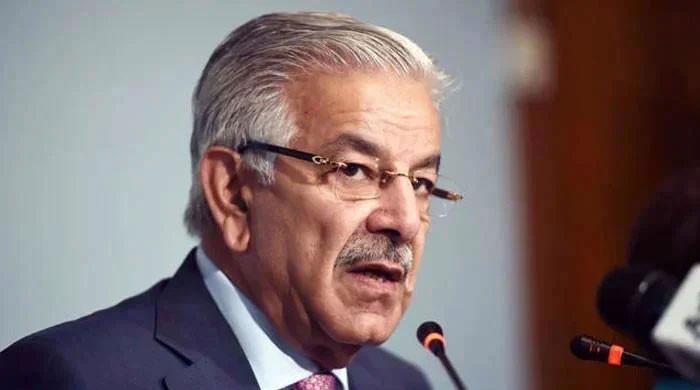Defence Minister Dismisses Indian Air Chief’s Claims
ISLAMABAD: Defence Minister Khawaja Asif on Saturday refuted recent statements made by the Indian Air Force (IAF) chief regarding the supposed destruction of Pakistani aircraft during Operation Sindoor, characterizing them as “untenable” and “poorly timed.”
His response followed allegations by IAF Air Chief Marshal AP Singh, who asserted that India had shot down five Pakistani fighter planes and another military aircraft during skirmishes in May. This marks the first such declaration from the country, occurring several months after its most intense military engagement with its neighbor in recent decades.
According to the Indian air chief, the majority of Pakistani aircraft were allegedly downed by India’s S-400 surface-to-air missile system, manufactured in Russia. He cited data from electronic tracking as proof of these strikes.
“We have confirmation of at least five fighter aircraft being destroyed, along with one larger aircraft,” he stated. He further noted that the larger aircraft, potentially a surveillance plane, was shot down at a distance of 300 km.
“This represents the most extensive surface-to-air takedown ever documented,” he remarked, eliciting applause from an audience composed of active air force officers, veterans, and representatives from government and industry.
Islamabad, whose air force predominantly utilizes Chinese-made jets and US F-16s, has consistently denied India’s claims of downing any Pakistani aircraft during the clashes that occurred between May 7-10 between the two nuclear-armed countries.
Pakistan maintains that it successfully shot down six Indian aircraft during the hostilities, including a French-manufactured Rafale fighter jet. India has conceded some losses but refutes the claim of losing six aircraft.
Previously, France’s air chief, General Jerome Bellanger, indicated that he had seen indications of three Indian fighters being lost, Rafale included. The Indian Air Force has not issued any comments regarding these claims.
In a post on X, the defense minister stated that it was “ironic” that high-ranking Indian military officials were being presented as the “public face of a significant failure” resulting from the “strategic miscalculations” of Indian politicians.
He highlighted that no such assertions had been made in the three months following the operation, whereas Pakistan promptly furnished detailed technical briefings to the international press.
He stated that independent analysts widely acknowledged the loss of numerous Indian aircraft, including Rafales, based on information derived from world leaders, prominent Indian politicians, and foreign intelligence evaluations. “Not a single Pakistani aircraft sustained damage or was destroyed by India,” he asserted.
Asif claimed that Pakistan neutralized six Indian jets, S-400 air defense systems, and unmanned aerial vehicles, while also rendering several Indian airbases temporarily inoperable. He added that the Indian armed forces experienced disproportionately greater casualties along the Line of Control.
The minister proposed that both nations permit an impartial audit of their respective aircraft inventories, while expressing skepticism that India would concur, as it would “expose the truth” it seeks to conceal.
He cautioned that “wars are not won through misinformation” but rather through “moral standing, national will, and professional skill,” while warning that employing such “fanciful accounts” for “domestic political advantage” could lead to serious strategic errors in a nuclear-armed setting.
Asif emphasized that, as exemplified during Operation Bunyanum Marsoos, “any infringement upon Pakistan’s sovereignty and territorial integrity will be met with a prompt, resolute, and appropriate response,” and accountability for any escalation would lie entirely with “strategically myopic leaders who jeopardize South Asia’s peace for short-term political gains.”



Comments (0)
No comments yet. Be the first to comment!
Leave a Comment